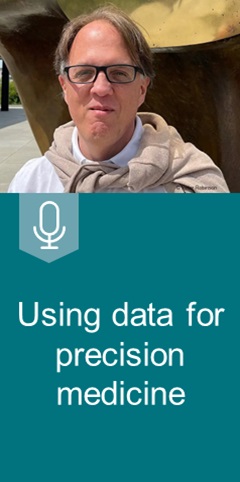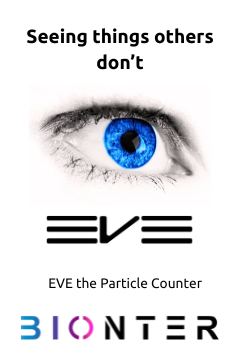Advertisement

Product › Details
TAPS technology (TET-assisted pyridine borane sequencing)
 |
Next higher product group | DNA methylation technology |
 |
Status | 2020-06-03 use/installation existent |
 |
Organisation | Base Genomics Ltd. |
| Group | Exact Sciences (Group) | |
| Original research | Ludwig Institute for Cancer Research Branch at the University of Oxford | |
Base Genomics Ltd.. (6/3/20). "Press Release: Base Genomics Announces Company Launch and Raises $11 Million USD to Commercialize Epigenetic Technology for Early and Sensitive Detection of Cancer from Liquid Biopsy". Oxford.
> Epigenetics company Base Genomics launches, based on a new invention to sequence DNA methylation developed at the Ludwig Institute for Cancer Research Branch at the University of Oxford
> The technology, TAPS (TET-assisted pyridine borane sequencing), sets a new gold standard in DNA methylation sequencing
> The funding round will accelerate the development of a DNA methylation-based blood test, unlocking opportunities in preventative medicine and patient monitoring
Epigenetics company Base Genomics has launched with a team of leading scientists and clinicians to set a new gold standard in DNA methylation detection. The company has closed an oversubscribed seed funding round of $11 million USD (£9 million GBP) to progress development of its TAPS technology, initially focusing on developing a blood test for early-stage cancer and minimal residual disease. The funding round was led by Oxford Sciences Innovation and also included investors with industry expertise in genomics and oncology.
DNA methylation is an epigenetic mechanism involved in gene regulation and has been shown to be one of the most promising biomarkers for detecting cancer through liquid biopsy. The existing industry standard for mapping DNA methylation degrades DNA and reduces sequence complexity, however, limiting scientific discovery and clinical sensitivity. Base Genomics’ new technology, TAPS, overcomes these issues and generates significantly more information from a given sample, creating new opportunities in research and the clinic.
"In order to realize the potential of liquid biopsies for clinically meaningful diagnosis and monitoring, sensitive detection and precise quantification of circulating tumour DNA is paramount,” said Base Genomics CMO Anna Schuh. “Current approaches are not fit for purpose to achieve this, but Base Genomics has developed a game-changing technology which has the potential to make the sensitivity of liquid biopsies a problem of the past."
First developed at Ludwig Institute for Cancer Research Branch at the University of Oxford, TAPS is a novel chemical reaction that converts methylated cytosine to thymine under mild conditions. Unlike the industry standard technology, bisulfite sequencing, TAPS does not degrade DNA, meaning that significantly more DNA is available for sequencing. TAPS also better retains sequence complexity, cutting sequencing costs in half and enabling simultaneous epigenetic and genetic analysis.
“Genomic technologies with the power, simplicity and broad applicability of TAPS come along very infrequently,” said Base Genomics CTO Vincent Smith. “It has the potential to have an impact on epigenetics similar to that which Illumina’s SBS chemistry had on Next Generation Sequencing.”
Base Genomics is led by a highly experienced team of scientists and clinicians, including Dr Vincent Smith, a world-leader in genomic product development and former Illumina VP; Dr Anna Schuh, Head of Molecular Diagnostics at the University of Oxford and Principal Investigator on over 30 clinical trials; Drs Chunxiao Song and Yibin Liu, co-inventors of TAPS at the Ludwig Institute for Cancer Research, Oxford; and Oliver Waterhouse, previously an Entrepreneur in Residence at Oxford Sciences Innovation and founding team member at Zinc VC.
“The ability to sequence a large amount of high-quality epigenetic information from a simple blood test could unlock a new era of preventative medicine,” said Base Genomics founder and CEO Oliver Waterhouse. “In the future, individuals will not just be sequenced once to determine their largely static genetic code, but will be sequenced repeatedly over time to track dynamic epigenetic changes caused by age, lifestyle, and disease.”
ENDS
Notes to Editors:
Anna Schuh
CMO, Base Genomics
Vincent Smith
CTO, Base Genomics
Oliver Waterhouse
Founder and CEO, Base Genomics
For further information please contact:
Katie Odgaard
Zyme Communications
E: katie.odgaard@zymecommunications.com
T: +44(0)7787 502 947
About Base Genomics
www.basegenomics.com
Base Genomics is an epigenetics company based on a new invention to sequence DNA methylation licensed from Ludwig Cancer Research and the University of Oxford. The technology, TAPS (TET-assisted pyridine borane sequencing), sets a new gold standard for DNA methylation detection to measure changes in DNA over time. With greater sensitivity, accuracy and cost-effectiveness than existing techniques, near term applications will include the early detection of cancer through a blood test, and sensitive detection and analysis of minimal residual disease. In scaling the technology, Base Genomics’ leadership team of world-leading scientists, product developers, and clinicians aim to unlock a range of new applications in research and healthcare.
About Oxford Sciences Innovation
www.oxfordsciencesinnovation.com
Oxford Sciences Innovation is the world’s largest university-partnered venture firm. We work with the University of Oxford to build companies that create fundamental technologies: science-based businesses capable of tackling the planet’s toughest problems. Founded in 2015, the firm has raised over £600M to create a world-class technology ecosystem, and combine our deep experience with a network of investors, entrepreneurs and sector-experts to find co-investment, build businesses, and hire senior management talent.
About Ludwig Cancer Research
www.ludwigcancerresearch.org
Ludwig Cancer Research is an international collaborative network of acclaimed scientists that has pioneered cancer research and landmark discovery for nearly 50 years. Ludwig combines basic science with the ability to translate its discoveries and conduct clinical trials to accelerate the development of new cancer diagnostics and therapies. Since 1971, Ludwig has invested $2.7 billion in life-changing science through the not-for-profit Ludwig Institute for Cancer Research and the six U.S.-based Ludwig Centers.
Record changed: 2023-07-10 |
Advertisement

More documents for diagnostic technology_o
- [1] i&i Biotech Fund. (3/15/23). "Press Release: i&i Biotech Fund Will Invest up to EUR 340 000 into Czech Startup Sophomer s.r.o.". Prague....
- [2] i&i Prague. (2/7/23). "Press Release: New Startup in Our Portfolio. Sophomer’s Technology Will Make Immunoassays Faster, Easier and Cheaper". Prague....
- [3] Vésale Bioscience. (1/17/22). "Press Release: Vésale Bioscience Receives €1.8M Grant from European Innovation Council for PhageDiag Project". Namur....
- [4] Eurofins Scientific SE. (5/31/22). "Press Release: Eurofins Enhances Its Clinical and BioPharma Service Offering in Japan with Immune Repertoire Analysis Technology Through the Acquisition of Repertoire Genesis Inc.". Luxembourg....
- [5] Nucleix. (4/7/21). "Press Release: Nucleix Secures $55 Million Funding Led by RA Capital Management and Additional Prominent Life Science Investors to Advance Lung EpiCheck® for Early Detection of Lung Cancer". San Diego, CA & Rehovot....
- [6] Scienion AG. (3/18/21). "Press Release: Gilupi and Scienion Announce Collaboration for the Development of Single-Cell CTC Analysis". Potsdam & Berlin....
- [7] Thrive Earlier Detection Corporation. (10/27/20). "Press Release: Exact Sciences to Acquire Thrive Earlier Detection, Becoming a Leader in Blood-Based, Multi-Cancer Screening". Madison, WI & Cambridge, MA....
- [8] Roche. (5/15/20). "Press Release: Roche Launches New Blood Gas Digital Solution Designed to Improve Patient Care". Basel....
- [9] Freenome, Inc.. (3/29/18). "Press Release: Institut Curie and Freenome Announce a Strategic Collaboration in Cell-Free DNA Analysis Using Machine Learning Technology". Paris & South San Francisco, CA....
- [10] Angle plc. (2/6/18). "Press Release: Research Grant from Abbott. Abbott PathVysion HER-2 DNA Probe Assay to Be Used in ANGLE FDA Study"....
To subscribe to our free, monthly newsletter for the European life sciences, please send an e-mail to info@iito.de and simply fill the subject line with the word »LSE Newsletter«
Find more infos about advertising at [iito] web portals in our media flyer [iito] in a Nutshell [PDF file]
Advertisement

» top
![[LSE] Life-Sciences-Europe.com - The European Life Sciences Web Portal](/images/basics/lse-life-sciences-europe-portal-logo.svg)
![Picture [iito] LSE iitoLifeScience Life Sciences Mass Spec 120x120px](/banner/iito-business-intelligence-20230710-120-120-twitter-iitolifescience-germany-europe-mass-spec.jpg)


![Picture [LSUS] Life-Sciences-USA.com – The Business Web Portal 120x600px](/banner/iito-20181119-120-600-lsus-life-sciences-usa-com.jpg)






